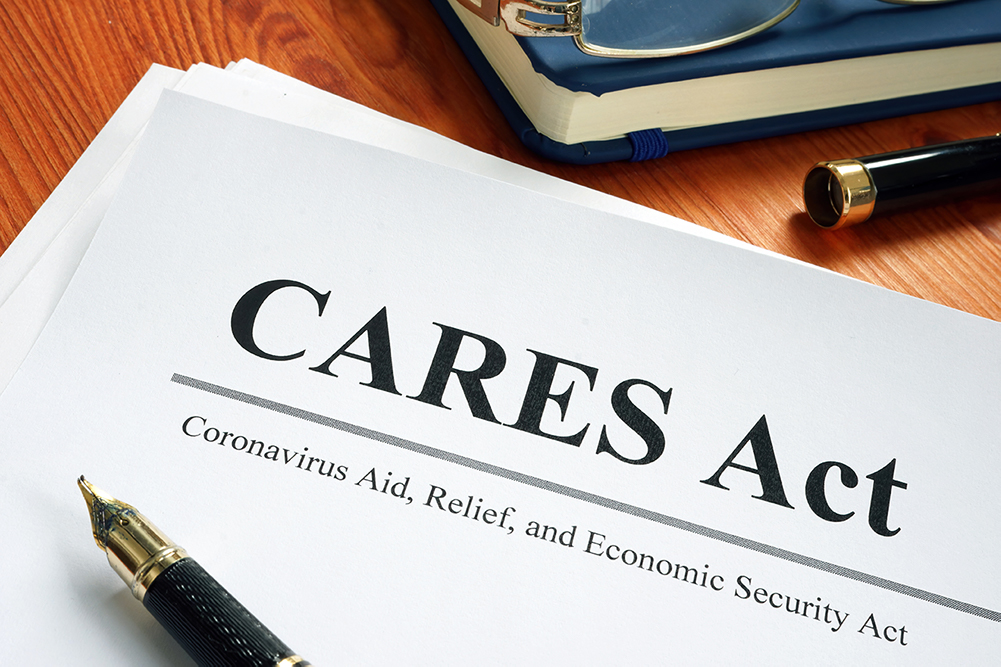The CARES Act enacted in March of this year provided considerable resources both to businesses and individuals to keep the economy on life support during the COVID-19 crisis. The bill enacted short-term measures such as delaying the date for filing tax returns and payments, Economic Impact Payments, Payroll Protection Program loans and other measures. Listed below are some tax ramifications of the CARES Act.
Tax Filing Deadline
The IRS and the Indiana Department of Revenue postponed the date for filing 2019 personal income tax returns and required payments as well as the April 14, 2020 and June 15, 2020 estimated tax payments until July 15, 2020. The deadline was also extended for contributions to IRA and Health Savings Accounts to July 15, 2020.
Economic Impact Payments (Stimulus Payments)
Any Stimulus Payments received by individuals are considered an advance payment on a new tax credit that will be reconciled on the 2020 tax return. It is a unique, fully refundable tax credit based upon your income and number of dependents. If your income for 2020 exceeds your income for 2019 it will not reduce or cause you to repay the Stimulus Payment already received. However, if your 2020 income is less than the 2019 income that limited your Stimulus Payment, then you may be able to receive the balance of the Stimulus Payment with the filing of your 2020 tax return.
Retirement Plans
Normally, if you make a withdraw from an eligible retirement plan and are younger than 59½, there is a 10% penalty in addition to the distribution being taxed. Under the CARES Act, that early withdraw penalty has been suspended for 2020 calendar year distributions taken for coronavirus-related hardships up to $100,000. Taxation on the distributions may be spread over three years. Additionally, if the IRA funds are recontributed within a three-year period, they will not be subject to income tax nor subject to the annual contribution limits.
For those over the age of 70½, the required minimum distributions have been suspended for the 2020 tax year.
Charitable Contributions
For taxpayers that itemize, the limit of cash contributions has been increased in 2020 from 60% to 100% of your Adjusted Gross Income. This new limit applies to cash gifts that qualify under section 170(b)(1)(A). This new limit does not apply to Private Foundations or to Donor Advised Funds.
For Taxpayers that do not itemize, 2020 includes a provision allowing a deduction to income up to $300 for qualified charitable contributions. An election to make this deduction is required with the 2020 tax return.
Delay in Payroll Taxes
The CARES Act permits employers and self-employed individuals to defer payment of the employer’s share (or the corresponding share of self-employed individuals) of the FICA (Federal Insurance Contributions Act) payments due on 2020 wages. The 6.2% rate is imposed on employers on each employee’s wages that do not exceed $137,700 for the 2020 calendar year. Fifty percent (50%) of the deferred 2020 tax is due to be paid by December 31, 2021 and the remaining 50% is due on December 31, 2022.
Employer Payments of Student Loans – Exclusion of Income
Between the date of enactment of the CARES Act and December 31, 2020, if an employer directly or indirectly repays an employee’s student loan, the amount repaid is excluded from the employee’s taxable income up to $5,250. This cap is reduced by any other educational assistance payments received by the employee that are otherwise excluded from taxable income.
The tax ramifications of the CARES Act, as well as the potential for future legislation, remain fluid. Please feel free to contact me if you have any questions. Click here to send me an email.
Remain safe and healthy!




